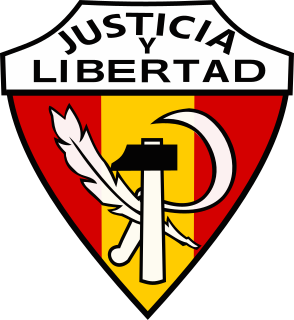 W
WThe Restoration, or Bourbon Restoration, is the name given to the period that began on 29 December 1874 — after a coup d'état by Martínez Campos ended the First Spanish Republic and restored the monarchy under Alfonso XII — and ended on 14 April 1931 with the proclamation of the Second Spanish Republic.
 W
WAlfonso XII, also known as El Pacificador or the Peacemaker, was King of Spain, reigning from 1874 to 1885. After a revolution that deposed his mother Isabella II from the throne in 1868, Alfonso studied in Austria and France. His mother abdicated in his favour in 1870, and he returned to Spain as king in 1874 following a military coup against the First Republic. Alfonso died aged 27 in 1885, and was succeeded by his son, Alfonso XIII, who was born the following year. To date, he is the last monarch of Spain to have died whilst on the throne.
 W
WAlfonso XIII, also known as El Africano or the African, was King of Spain from 1886 until the proclamation of the Second Republic in 1931. He was a monarch from birth as his father, Alfonso XII, had died the previous year. Alfonso's mother, Maria Christina of Austria, served as regent until he assumed full powers on his sixteenth birthday in 1902.
 W
WThe Autonomist Republican Union Party was a Spanish republican party based in Valencia and founded in 1907 by Vicente Blasco Ibáñez.
 W
WThe Dictablanda of Dámaso Berenguer, or Dámaso Berenguer's dictatorship was the final period of the Spanish Restoration and of King Alfonso XIII’s reign. This period saw two different governments: Dámaso Berenguer’s government, formed in January 1930 with the goal of reestablishing “constitutional normality” following Primo de Rivera’s dictatorship, and President Juan Bautista Aznar’s government, formed a year later. The latter paved the way to the proclamation of the Second Spanish Republic. The term dictablanda was used by the press to refer to the ambivalence of Berenguer’s government, which neither continued the model of the former dictatorship nor did it fully reestablish the 1876 Constitution.
 W
WElectoral Carlism of Restoration was vital to sustain Traditionalism in the period between the Third Carlist War and the Primo de Rivera dictatorship. Carlism, defeated in 1876, during the Restauración period recalibrated its focus from military action to political means and media campaigns. Accommodating themselves to political framework of the Alfonsine monarchy, the movement leaders considered elections, and especially elections to Congreso de los Diputados, primary vehicle of political mobilization. Though Carlist minority in the Cortes remained marginal and its impact on national politics was negligible, electoral campaigns were key to sustain the party until it regained momentum during the Second Spanish Republic.
 W
WThe Sindicatos Libres was a Spanish company union born in Barcelona, Catalonia. It was established by Carlist workers, and remained active during the early interwar period as a counterweight to the anarcho-syndicalist Confederación Nacional del Trabajo. The group aided employers take action against striking unionists, and was thus criticized as a "yellow union" with proto-fascist leanings; however, its regular members were in practice freely moving between right- and left-wing unionism. The Sindicatos lost momentum during the dictatorship of Miguel Primo de Rivera, and eventually dissolved when the Second Spanish Republic was proclaimed.